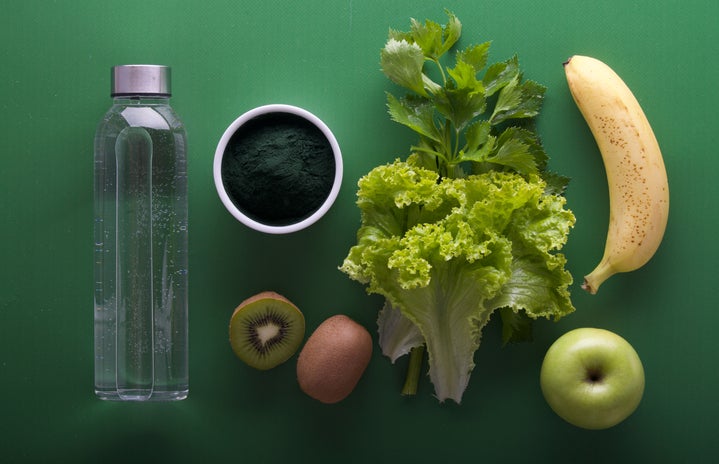On some days, it feels hard, or even impossible, to look at yourself in the mirror. When this happens, it feels like you’re regressing on your hard-earned growth, and the last thing you want to see is another self-care infographic cheerily telling you to light a candle and start a gratitude journal next to a sponsored ad for bath salts.
Let’s take a step back and make sure your physiological needs are being met because staying hydrated, eating well, breathing fresh air, and getting enough sleep are the building blocks of self-care.
1. Water
Forgetting to drink water is dangerously easy, and even easier now that we wear masks in class and at work. We tend to focus on the physical symptoms of dehydration, like headaches, lightheadedness, and nausea, which makes us more likely to reach for Advil or Gravol than consider its effects on our cognition.
However, water is brain fuel—even mild dehydration negatively affects your mood, concentration, and memory, so it’s important to ask yourself when you last drank water and keep your water bottle full and close by!
Teas, low-caffeine coffees, and fruits and vegetables are hydrating as well, but sugary drinks have the opposite effects. If you start off your mornings with extra sweeteners in your espresso or love high-sugar juice boxes, be sure to balance your sugar intake with enough hydrating fluids as well.
2. Food
If you’re suddenly feeling more irritable than usual, consider the last time you ate.
The colloquial term “hangry“ is rooted in neurobiology: proper food intake keeps your glucose levels balanced, and when your blood sugar drops because you haven’t eaten in a while, your body releases cortisol and epinephrine (hormones related to stress).
Junk foods tend to cause a sugar rush followed by a sugar crash, so if they’re accessible to you, the best snack options are high in fiber and rich in vitamins and minerals!
3. Fresh air
Your brain needs a lot of oxygen to function, and fresh air tends to have higher levels of oxygen than air in enclosed rooms while encouraging diaphragmatic breathing over apical breathing, which is contained to the upper chest. This means breathing fresh air and spending time outdoors sharpens your cognition!
It’s okay if you’re too tired to go for a run or you don’t have time to go for a walk. Opening your windows or stepping outside for a minute, even if it’s already getting dark and you’re still in your pyjamas, is good for your heart, brain, and lungs.
4. Sleep
It’s no secret that sleep deprivation impairs important neurocognitive processes, including learning and decision-making, but it impairs our emotion processing and regulation as well.
Functional MRI evidence shows that the sleep-deprived brain produces an amplified response to negative emotional stimuli, suffers more mood disturbances, and has difficulty managing appropriate emotional behaviours. This means we’re more likely to take things too personally or pessimistically interpret social situations when we don’t get enough sleep.
If you feel terrible for seemingly no reason, ask yourself whether taking a nap or going to bed early that night would be a good idea.
Remember that physiological needs are the very foundation of Maslow’s hierarchy, so keep checking in with yourself to make sure you’re drinking enough water, eating enough food, breathing enough fresh air, and getting enough sleep. Everything else will follow.






